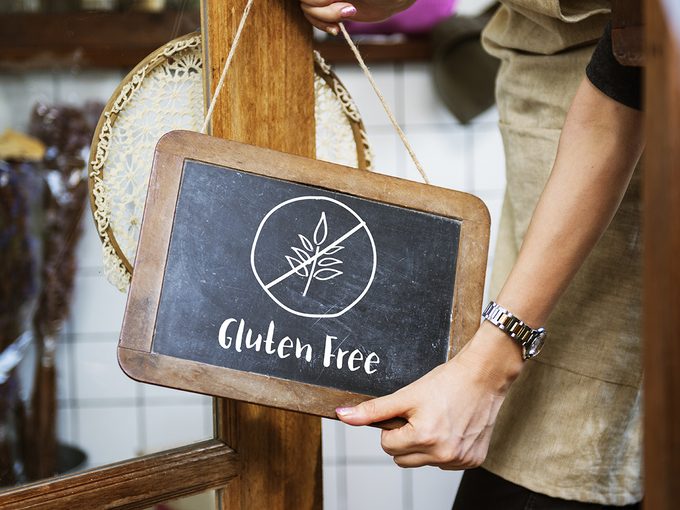Could a Gluten-Free Diet Improve Your Sex Life?
There’s a link between undiagnosed celiac disease and low sexual satisfaction. Here’s what you need to know about gluten and your sex life.

If you’ve been feeling like your sex drive is lacking, gluten could be to blame
We know that people with untreated celiac disease suffer from a variety of serious symptoms – from digestive problems, depression and fatigue to serious reproductive issues such as infertility and miscarriage. However, recent research has revealed that there’s also a link between gluten intolerance, sex drive and overall sexual satisfaction.
According to a study conducted by the Department of Gastroenterology at Federico II University in Naples, Italy, there’s a direct correlation between untreated celiac disease and a lowered sex drive. The study found that adults with untreated celiac disease had a much lower frequency of intercourse and reported less satisfaction with their sex lives. However, after following a gluten-free diet, participants experienced an increase in their libido.
So just exactly how much sex is normal?
What a life-long gluten-free diet could mean for you
In a separate study which looked at individuals who had been diagnosed with celiac disease as children, researchers from Federico II University found yet another link between the autoimmune disease and sexuality. The researchers surveyed 195 adults who had either followed a gluten-free diet since their diagnosis in childhood, followed a gluten-free diet only initially after diagnosis or had never followed a gluten-free diet.
Participants in the ‘never gluten-free’ group had decreased sexual activity and also reported less interest in sex – 18 percent said they had low interest in sex, compared with 13 percent of the gluten-free diet group.
The first factor: Digestive problems
Alice Bast is the founder and president of the National Foundation for Celiac Awareness (NFCA). As she explains, we all want to feel sexy and satisfied, however this can be challenging when you’re dealing with untreated celiac disease. “Some of the symptoms of celiac disease include gas, bloating, depression and fatigue. When you have these kinds of digestive issues, it lowers your libido because you’re not feeling good about yourself and instead, feel self-conscious,” says Bast. Therefore, it makes sense that you wouldn’t want to be intimate with your partner. As Bast says, “celiac disease can make your mojo a no-go.”
Try this insanely delicious gluten-free pasta recipe with asparagus, pancetta and hazelnuts.
The effect of gluten on hormones
However, the connection between celiac disease and sex drive isn’t strictly mental. When left undiagnosed and untreated, celiac disease can have hormonal repercussions. As a serious autoimmune disorder, celiac disease causes malabsorption, which leads to nutritional deficiencies. “These nutritional deficiencies lead to hormonal abnormalities which affect sexual desire and performance,” says Bast.
So should you try a gluten-free diet?
The good news is that with proper diagnosis and treatment through a gluten-free diet, it’s possible to restart your health and sex life. If you suspect you might be suffering from undiagnosed celiac disease, Bast suggests referencing a symptoms checklist (Find one on the NFCA’s website, CeliacCentral.org) and scheduling an appointment with your doctor to get properly tested. If you are diagnosed with celiac disease, a gluten-free diet can help – especially with digestive issues.
While some people go gluten-free for reasons other than celiac disease, Bast cautions against self-diagnosis and says it’s important to always consult with your doctor, since there could be an underlying issue. Although researchers have shown a link between celiac disease and your sex life, it’s not the be-all-end-all cause of all sexual dysfunction. Sexual dysfunction may be a symptom of other medical issues; therefore it’s important that you speak with your doctor first before making any dietary changes.




